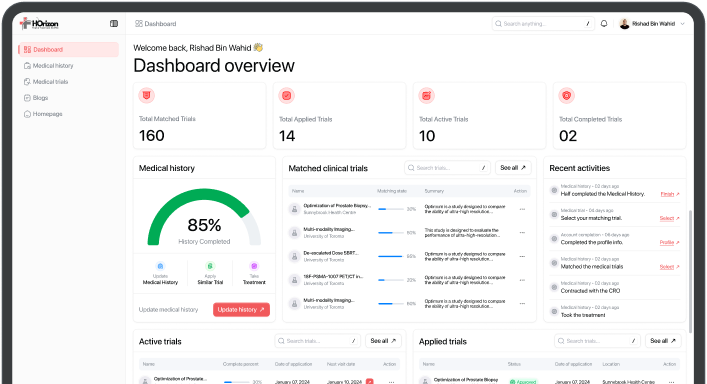Clinical trials are a vital component of the healthcare sector, providing crucial data that paves the way for new treatments and medical advances. In Canada, the landscape of clinical trials is particularly dynamic, reflecting a robust framework that supports innovation while ensuring participant safety and scientific integrity.
Canada’s Strategic Advantage in Clinical Trials
Canada is a global leader in the conduct of clinical trials, thanks in large part to its robust healthcare infrastructure, diverse population, and significant government investment in health research. This unique combination of factors places Canada at a strategic advantage, enabling it to contribute significantly to the global medical research landscape.
The country’s healthcare system is anchored by 17 medical schools and about 40 groupings of academic healthcare organizations, which collectively foster an environment ripe for clinical research. These institutions not only provide a steady stream of well-educated healthcare professionals but also facilitate multi-disciplinary research collaborations that are essential for complex clinical trials. Furthermore, Canada’s diverse population is a key strength, providing a heterogeneous pool for patient recruitment which is crucial for the generalizability of clinical trial results.
Financially, Canada is strongly supported by governmental and institutional investments, highlighted by the Canadian Institutes of Health Research (CIHR), which invests over $667 million annually in health research. This funding supports a wide range of health research, from basic science to clinical application and public health, ensuring that Canada remains at the cutting edge of medical innovations.
Additionally, Canada is recognized globally for the quality and expertise of its clinicians and researchers, many of whom are leaders in their fields. This reputation not only attracts further international investment into Canadian clinical trials but also facilitates partnerships with global pharmaceutical and biotechnological firms looking to leverage Canada’s research capabilities.
Regulatory aspects also play a crucial role in Canada’s strategic advantage. The country’s regulatory framework for clinical trials is stringent, ensuring that studies conducted within its borders meet the highest standards of participant safety and scientific rigor. This regulatory environment not only protects participants but also adds to the credibility and international acceptance of the data generated.
Economically, the clinical trials sector in Canada contributes significantly to the national economy by creating high-quality jobs and stimulating the development of new and innovative healthcare products. This sector’s growth is further supported by Canada’s proactive approach to embracing and integrating new technologies such as digital health and personalized medicine into clinical research, enhancing the efficiency and effectiveness of trials.
Canada’s strategic advantage in clinical trials is multifaceted, rooted in its strong educational infrastructure, diverse and inclusive patient recruitment, significant investment in health research, and a robust regulatory framework. These elements collectively ensure that Canada not only contributes significantly to global medical research but also stands at the forefront of clinical trial innovation, benefiting both the global community and its own population.
The Role and Innovation of Horizon Trial
Horizon Trial is revolutionizing the landscape of clinical trials in Canada with its innovative platform that utilizes machine learning technology to match patients with clinical trials. This breakthrough in medical technology represents a significant stride forward in the efficiency and effectiveness of clinical research, addressing several critical challenges in the field.
One of the main challenges in clinical trials is the recruitment and retention of participants. Traditional methods can be slow and inefficient, often failing to find enough participants who meet the specific criteria for a given study. Horizon Trial’s platform tackles this issue head-on by intelligently vetting potential participants based on their detailed health profiles and the criteria of specific clinical trials. This not only speeds up the process but also improves the accuracy of matching, ensuring that trials are conducted with the most suitable candidates, thereby increasing the likelihood of successful outcomes.
Horizon Trial’s use of advanced algorithms and machine learning is at the heart of its innovation. The platform analyzes vast amounts of data to identify patterns and correlations that might escape human researchers. This capability allows for more precise targeting of potential trial participants and can even predict the likelihood of a participant completing a trial based on historical data. Such predictive analytics is invaluable as it reduces the time and cost associated with clinical trials by minimizing drop-outs and inefficient recruitment strategies.
Moreover, Horizon Trial provides a vital service by making clinical trials more accessible to the public. Many clinical trials, especially those in the early stages or those funded by smaller entities, do not get the visibility they need. Horizon Trial’s platform aggregates and lists these trials, making them easily accessible to a wider audience. This not only helps trials find participants more quickly but also increases public engagement with medical research.
The platform also benefits healthcare providers by offering them a tool to help their patients access the latest treatments. In some cases, participation in a clinical trial can be a patient’s best option for treatment, particularly for those with conditions that have limited conventional treatment options. By providing healthcare providers with easy access to information about ongoing clinical trials, Horizon Trial enables them to offer additional options to their patients, thus enhancing patient care.
In conclusion, Horizon Trial’s innovative use of technology to enhance the clinical trial process in Canada represents a significant advancement in medical research. By improving the efficiency and effectiveness of clinical trials, Horizon Trial is not only helping to bring new treatments to market more quickly but is also making clinical research a more integral part of healthcare provision, benefiting patients, researchers, and healthcare providers alike.
Economic Impact and Growth Prospects
The economic impact of clinical trials in Canada extends beyond the direct outcomes of medical research, influencing a broad spectrum of economic activities and promising substantial growth prospects. The clinical trials sector significantly contributes to the national economy by driving advancements in healthcare, creating high-quality jobs, and stimulating the development of innovative medical technologies.
The direct economic benefits are considerable. Clinical trials provide employment for a wide range of professionals, including researchers, clinical coordinators, data analysts, and administrative staff, contributing to job creation and economic stability. These roles are often well-paid and require high levels of education and skill, contributing to a knowledgeable and prosperous workforce.
Furthermore, the operation of clinical trials stimulates secondary economic activity. This includes the growth of ancillary businesses such as clinical supplies, logistics, and biotechnology firms. The development and production of trial materials often require local resources, benefiting small and medium-sized enterprises within the community.
Looking ahead, the growth prospects for clinical trials in Canada appear robust. The global move towards personalized medicine and the increasing prevalence of chronic diseases drive demand for more targeted and effective treatment options, which in turn fuels the need for clinical trials. Canada’s diverse population makes it an ideal location for these studies, as it provides varied genetic backgrounds necessary for comprehensive testing, enhancing the global applicability of the research conducted.
Moreover, advancements in technology such as data analytics, artificial intelligence, and machine learning are set to further revolutionize the clinical trials market, making trials more efficient and reducing time to market for new therapies. Canadian research institutions and companies are at the forefront of integrating these technologies into clinical research, positioning Canada as a leader in innovative clinical trial practices.
The economic impact of clinical trials in Canada is significant, contributing to both the health sector and the broader national economy. The prospects for future growth are enhanced by technological advancements and the increasing demand for personalized medical treatments, ensuring that Canada remains at the cutting edge of clinical research.
Challenges and Strategic Directions
Despite the optimistic outlook, the clinical trials sector in Canada faces several challenges that could impede its growth and efficiency. Addressing these challenges requires strategic planning and innovative solutions to ensure that Canada maintains its competitive edge in the global clinical trials market.
One of the primary challenges is the complexity and cost associated with conducting clinical trials. Regulatory requirements, although necessary for ensuring participant safety and data integrity, can be stringent and time-consuming. Navigating these regulations requires significant expertise and resources, which can be particularly burdensome for smaller research entities.
Another significant challenge is the recruitment and retention of trial participants. Many clinical trials struggle to enroll enough participants, and high dropout rates can compromise study results. This issue is exacerbated by a lack of public awareness and misconceptions about clinical trials, making effective recruitment campaigns crucial.
Strategically, Canada needs to focus on enhancing the efficiency and effectiveness of clinical trials. This involves embracing digital technologies that streamline trial processes, such as electronic data capture, remote monitoring, and virtual trials. These technologies not only reduce the logistical burdens and costs associated with traditional trials but also improve participant accessibility and compliance.
Moreover, fostering collaborations between academic institutions, healthcare providers, and private enterprises can enhance resource sharing and innovation. Such partnerships are essential for integrating multidisciplinary expertise necessary for advanced trials, particularly those involving complex diseases or cutting-edge therapies.
In terms of strategic direction, increasing public engagement and education about the benefits and safety of clinical trials is crucial. Enhanced public awareness can improve participant recruitment rates and foster a more trial-friendly environment.
Furthermore, to stay competitive globally, Canada must continue to invest in its research infrastructure and workforce. Supporting education and training programs for clinical research professionals, and providing incentives for international pharmaceutical companies to conduct trials in Canada, will help maintain the country’s reputation as a premier location for clinical research.
While the clinical trials sector in Canada faces challenges, strategic measures that leverage technology, enhance public engagement, and foster collaborations can address these effectively. By adopting such strategies, Canada can continue to grow and innovate within the global clinical trials market, bringing significant economic and health benefits to the country.
As the landscape of clinical trials evolves, driven by technological advancements and a growing emphasis on personalized medicine, Horizon Trial is well-equipped to play a pivotal role in shaping the future of clinical research in Canada. By bridging the gap between patients and clinical trials, Horizon Trial not only contributes to the advancement of medical research but also enhances the accessibility of cutting-edge treatments, ultimately fostering a healthier future.

